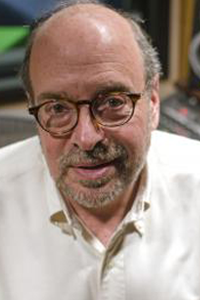
Curtis Killian
Bill Elliott
For media inquiries, please contact Media Relations
Bill Elliott taught arranging and orchestration in the Contemporary Writing and Production Department at Berklee, beginning in 2004. His original songs and arrangements have appeared in many TV shows and films, including Dick Tracy, Northern Exposure, Nixon, Gilmore Girls, and Wedding Crashers, among others. Elliott has worked as a song arranger for Disney's Home Video productions, such as Return of Jafar, Aladdin and the King of Thieves, Kronk's New Groove, and Bambi II, in addition to composing scores for several Disney Channel films, independent films, and the ABC TV movie Child Star: The Shirley Temple Story. He arranged and produced Michael Feinstein's Grammy-nominated album, The Sinatra Project, and Australian singer David Campbell's album, On Broadway.
Elliott began his career as a pop piano player, working with a number of local Boston artists and spending two years in Bonnie Raitt's band in the late '70s. He then became involved in studio work, first as a player and then as an arranger, working with such diverse artists as Stevie Nicks, Donna Summer, America, Robbie Dupree, and Smokey Robinson, among others. Since 1993, he has led the 19-member Bill Elliott Swing Orchestra, which has performed widely and recorded four CDs. Elliott has also recorded two CDs of orchestral music for children with actor John Lithgow. As Lithgow's music director, Elliott has conducted the Chicago, Pittsburgh, Baltimore, Detroit, and San Diego symphonies and the Orchestra of St. Luke's in Carnegie Hall. Most recently, he has been widely praised in reviews for his orchestrations in the musical Robin and the Seven Hoods at the Old Globe Theater in San Diego, California.
- Leader of Bill Elliott Swing Orchestra
- Performances with the Boston Pops, Chicago Symphony, Pittsburgh Symphony, and Baltimore Symphony
- Recordings include Diane Schuur’s Midnight, Alan Jackson’s Let It Be Christmas, John Lithgow’s Farkle and Friends, and Lorraine Feather’s Such Sweet Thunder
- Composed music for The Remarkable Farkle McBride for symphony orchestra, published by Universal Music
- Composer for Disney television films, including Child Star: The Shirley Temple Story, Alley Cats Strike, and Phantom of the Megaplex
- Orchestrator for Bruce Boughton and Snuffy Walden
- Professor Emeritus, Berklee College of Music
- Winner of 2015 Tony Award for Best Orchestration
